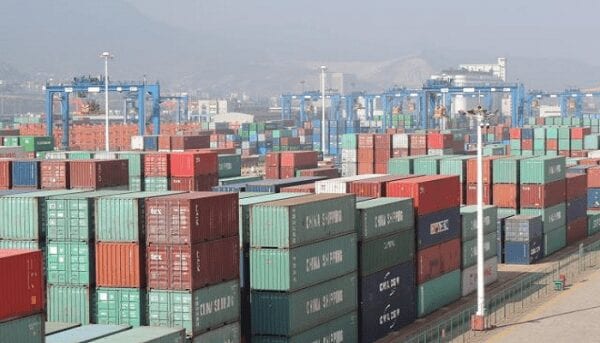How Nigeria lost N1.5tr shipping business to foreign companies – The Federal Government can realise over N1.5 trillion from over 10,000 vessels doing business, it was learnt.
But investigation has revealed that the huge revenue was going into private pockets of foreign shipping firms operating at the seaports.
A top Federal Ministry of Transportation (FMoT) official, who asked not to be named, urged the Federal Executive Council (FEC) to focus its attention on Floating Production Storage Offshore Vessels (FPSOVs) and supply boats because of the dwindling oil revenue.
“As part of efforts to boost the economy in the post-COVID-19 period, there is an urgent need for the government to empower the Nigerian Content Development and Monitoring Board (NCDMB) to implement the Nigerian Oil and Gas Industry Content Development Act 2010 to boost the economy.
“There are more than 10,000 ships, oil platforms, rigs and barges operating in the oil gas and port sectors every year that need essential provisions and services to maintain their crew on board the ships,” the official said.
The senior official said the Local Content Act was meant to address issues of this nature, noting that the National Content Monitoring Board (NCMB) was yet to understand the dynamics of local content in ship chandling.
The Federal Government, he said, was losing a huge revenue to the low level in ship chandling business because foreigners are dominating trade.
The senior official said ship chandling needs a lot of funds to meet the demands of the crew.
“For instance, a crew of a ship of 5,000 Gross Registered Tonnage (GRT) would require about $50,000 monthly to buy foods, pharmaceuticals, oil, lubricants and other things for its trip,’’ he said.
Stakeholders in the maritime industry, he said, were worried that the law guiding ship chandling was not effective, adding that Section 24 of the Customs and Excise Management Act (CEMA), which regulates the business, has not been reviewed since 1968 to reflect new trends.
He said the Nigeria Customs Service (NCS) has the power to provide the requisite training to understand the dynamics of how the business is run.
A member of Association of Chandlers and Ship Suppliers of Nigeria (ACSSN), Felix Anthony said that the Federal Government can raise over N1.5trillion revenue from over 10,000 vessels carrying out their business in the country.
He said the government should empower the Nigerian Content Development and Monitoring Board (NCDMB) in carrying our its implement core responsibilities.
He berated a situation where foreigners are supplying 90 per cent of essential commodities to Floating Production Storage Offshore Vessels (FPSOVs), oil rigs, platforms, supply boats, LNG vessels and bonga flow stations, saying that if the NCDMB was fully empowered by the government to enforce its Act, the reverse would be the case since only local were permitted to supply provisions to vessels in other countries.
He stressed that lack of regulation of the sector by the appropriate agencies of the government was partly responsible for the criminal activities on the territorial waters.
He said the country had been losing between $3.5 and $4billion to foreigners for over 15 years in the sector, stressing that the illegal practice was causing capital flight in the country, noting that the money that supposed to be in the country was being repatriated by foreigners.
He lamented that illegal chandling service by foreigners and unlisenced Nigerians has led to kidnapping and illegal business on waterways.
He accessed the Nigeria Customs Service (NCS) of not having up to date record of genuine professionals in the sector.
He alleged that the local shipping firms and foreign vessels coming into the Nigerian ports were culpable of patronising the touts.
Also, a maritime lawyer and University don, Dr Dipo Alaka frowned at the indiscriminate issuance of licences by the Nigeria Customs Service (NCS) to non-professional chandlers for over a decade now.
The don explained that the best way to stop capital flight in the sector was for Customs to stop releasing licences to non-ship chandellers.
Also, he stressed the need by the Federal Government to compel foreign vessels coming into the country’s ports to patronise Nigerian professionals in order to boost government revenue and offer thousands of jobs for Nigerians.
In May 2018, an eight-man committee was also set up by the NCDMB, following the report of huge loss and illegal chandelling a in the maritime industry.
The committee was also asked to provide actionable intelligence on companies or vessels violating the provision of Nigerian Oil and Gas Industry Content Development Act (NOGICD Act) 2010 with respect to chandlers’ service.
Ship chandling is regulated by the International Ship Suppliers Association (ISSA). It is central to the existence and social dynamics of ports and waterfront areas.































